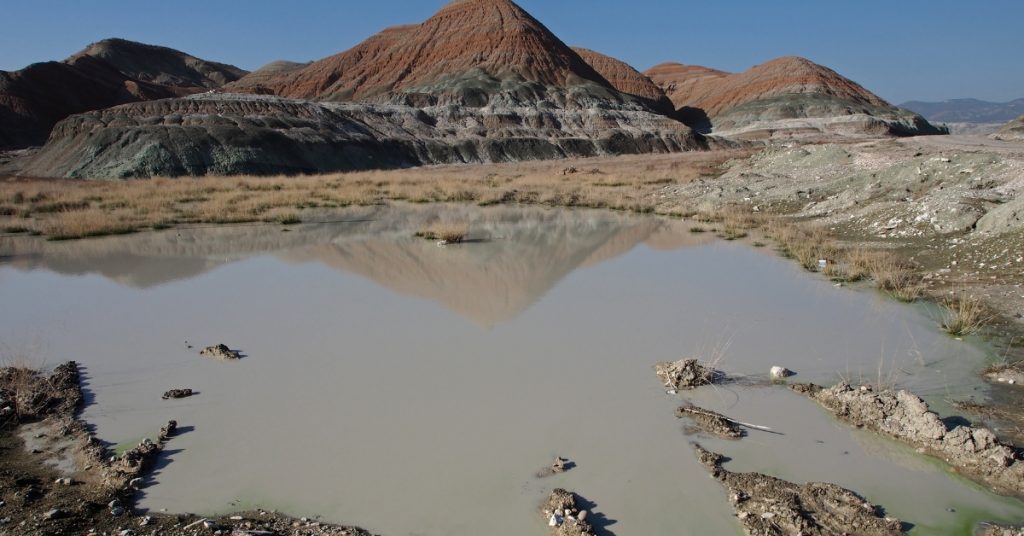Portugal, like many regions across the globe, is grappling with a growing challenge: water scarcity. With rising temperatures, decreasing rainfall, and increased consumption from agriculture and industry, the issue is becoming more critical each year. But where challenges exist, opportunities for innovation emerge. Today, industries are stepping up to lead the way in tackling this issue, demonstrating how technology and sustainable practices can reshape the future of water management in Portugal.
Understanding Water Scarcity
Before we delve into the role of industrial innovation, it is important to address a fundamental question: What is water scarcity? Water scarcity refers to the lack of sufficient available water resources to meet the demands of water usage within a region. It affects nearly every continent and is a growing concern for both developed and developing nations.
In Portugal, the situation is especially alarming in the southern regions, where semi-arid conditions dominate. The country has experienced multiple droughts over the past few decades, impacting everything from agricultural productivity to domestic water supply. Understanding what is water scarcity and why it happens is the first step in addressing it effectively.
Causes of Water Scarcity in Portugal
To combat water scarcity, we need to understand its root causes. There are both natural and human-induced causes of water scarcity that affect Portugal. Climate change has led to longer dry seasons and reduced precipitation. The growing demand for water in urban areas, along with inefficient agricultural practices, further compounds the issue. Industrial activities, while essential for economic growth, also consume significant amounts of water and can contribute to pollution if not managed properly.
Among the most pressing causes of water scarcity is the imbalance between water supply and demand. Portugal’s reliance on surface water for irrigation and drinking water becomes problematic when reservoirs run dry during prolonged droughts. Additionally, aging water infrastructure and leakages further reduce the availability of usable water.
Industrial Innovation: A Key to Water Security
Despite these challenges, Portugal is showing promising signs of change. Industrial innovation has become a powerful tool in addressing water scarcity. Many companies are now adopting advanced water treatment technologies, recycling systems, and digital water monitoring to optimize usage and reduce wastage.
One significant area of innovation lies in wastewater treatment and reuse. Industries are investing in closed-loop water systems that treat and recycle wastewater for reuse in manufacturing processes. This reduces dependence on freshwater sources and minimizes discharge into the environment.
Another promising development is the use of membrane-based filtration and ion exchange technologies. These solutions allow for the effective separation and purification of industrial effluents, turning what was once waste into a valuable resource. With such advancements, Portugal’s industries are not just adapting to the causes of water scarcity — they’re becoming part of the solution.
Smart Water Management Through Digital Solutions
The digital transformation of water management is gaining momentum across Portugal. With real-time monitoring and data analytics, industries can now make informed decisions about water consumption and conservation. Smart sensors detect leaks, monitor quality, and predict system failures before they happen. These innovations not only reduce water loss but also improve operational efficiency and sustainability.
Moreover, predictive modeling powered by artificial intelligence is helping companies forecast water needs and optimize their supply chains accordingly. This proactive approach allows businesses to adapt to changing water availability and ensure continuity even during dry spells.
How is Ion Exchange Driving Solutions to Water Scarcity Challenges?
One of the leading companies addressing water scarcity in Portugal is Ion Exchange. By providing advanced water treatment and recycling solutions, Ion Exchange plays a crucial role in helping industries and communities manage their water resources more sustainably.
It offers a compact, fully automated twin-bed deioniser system with advanced counter-flow ion exchange technology. Designed for rapid regeneration within 35 minutes, it ensures continuous high-quality deionized water with minimal waste. The skid-mounted, corrosion-resistant frame includes a stainless steel pump that aids in service and provides recirculation options for optimal water quality. With a PLC-controlled cycle and a 10.4″ HMI display, it operates at low cost and high efficiency, achieving water conductivity between 1–10 μS/cm, ideal for applications demanding superior treated water.
The escalating scarcity of quality water has heightened dependence on groundwater sources, necessitating effective treatment solutions for brackish or saline water. With Ion Exchange’s INDROMATIC RO SERIES, industries are leveraging advanced reverse osmosis membrane technology. Widely adopted globally, this system efficiently purifies brackish water for industrial and potable use. The INDROMATIC RO SERIES ensures the production of water with significantly low dissolved solids while eliminating particulate, colloidal, and organic matter. Noteworthy advantages include its status as the most economical and efficient method for dissolved solids removal, operational simplicity with a compact footprint, adept handling of fluctuations in feed water Total Dissolved Solids (TDS), and assured accessibility to spares and services with a short delivery period.
Ion Exchange provides innovative water recycling solutions with a range of advanced products designed to meet diverse treatment needs. These include continuous media filters, which efficiently remove suspended solids and impurities; advanced oxidation systems, which break down complex contaminants using powerful oxidation processes; and membrane systems for high-performance filtration, ensuring clean and reusable water. Together, these technologies enable industries to recycle water effectively, reduce waste, and promote sustainable water management practices.
Conclusion
As Portugal continues to experience the effects of climate change and increased water demand, embracing industrial innovation is no longer optional — it is essential. The causes of water scarcity may be complex, but with the right technology, infrastructure, and partnerships, they are not insurmountable.
Industries are at the forefront of this transformation, turning challenges into opportunities for growth and sustainability. By integrating advanced water purification systems, adopting smart technologies, and participating in collaborative efforts, Portuguese industries are helping secure the country’s water future.


